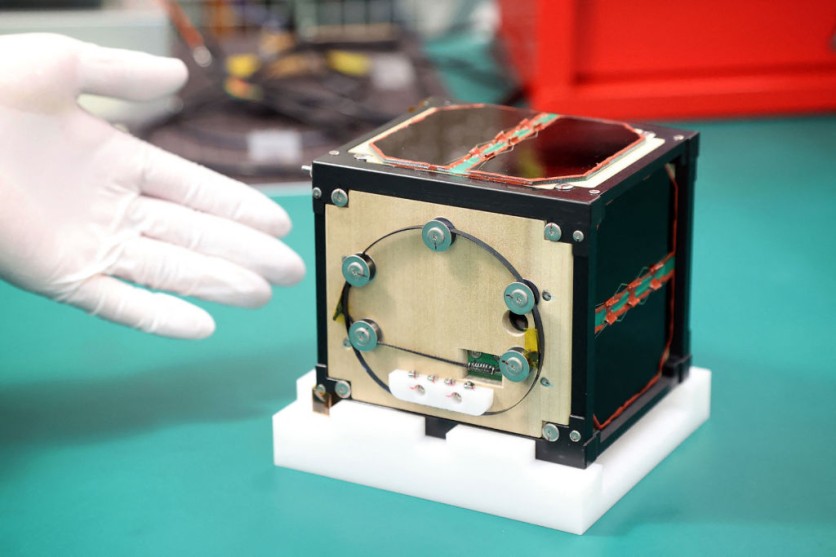Japan will launch the first wooden satellite in history, a key milestone in space sustainability efforts. Kyoto University engineers completed the experimental spacecraft named LignoSat after years of planning, research, and construction.
The satellite, made of magnolia wood, will be received by the Japan Aerospace Exploration Agency (JAXA) next week. September will see the launch of LignoSat, a 10-centimeter-square cube satellite.
According to Interesting Engineering, SpaceX will launch it from the Kennedy Space Center to the International Space Station (ISS). On the ISS, astronauts will release the satellite into orbit to monitor its operation for several months.
Space tests will expose the spacecraft to severe temperatures and solar radiation. The satellite will operate for five to six months, testing the wood's strength and endurance. The data gathered will be the basis for creating LignoSat-2 and subsequent wooden satellites.
The Importance of LignoSat in the Space Industry
Creating an eco-friendly satellite aims to lessen environmental effects. The wooden satellite burns entirely, leaving only biodegradable ash, unlike metal satellites, which leave dangerous metal particles. This idea promises to reduce space trash and environmental damage from traditional satellites.
Kyoto University professor and astronaut Takao Doi emphasized the importance of developing wood's "sustainable potential" in line with plans, including building wood-based human dwellings on the moon and Mars.
Identifying acceptable wood types to build LingoSat entailed extensive investigation and coordination with Sumitomo Forestry. After scrutinizing the samples, magnolia wood was selected for its suitability in space.
Sumitomo Forestry will analyze the data to understand nano-scale wood degradation. According to The Japan Times, the business develops technologies for preventing wood decay and explores novel wood uses, including resilient building exteriors.
Since satellite launches are likely to rise, wooden satellites provide a greener option. The success of Japan's LignoSat may spur research into wooden satellite payloads and observational applications.

The Serious Threat of Space Junk
The development of LignoSat comes amid growing risks posed by space debris made of metal. Satellites continue to populate low-Earth orbits, from 160 km to 2,000 km above Earth.
Due to its reduced fuel needs and benefits for low-powered communication devices and Earth observation, this area harbors more functioning satellites and space junk.
According to BBC, Iridium satellite phones, weather forecasting, environmental monitoring, and surveillance benefit from low-Earth orbit's closeness to the ground. At 400 km altitude, the ISS and China's Tiangong space station operate.
Experts consider space junk, including satellites and rocket launch leftovers, dangerous. These scraps orbit Earth at speeds up to 28,000 km/h, increasing collision risk.
Space debris has forced the ISS to move 30 times in 20 years. Satellites can fracture into thousands of pieces, causing more collisions and possibly Kessler syndrome that might leave orbital space inaccessible for decades.
The worst-case scenario might damage GPS and satellite imagery and prohibit human space access. Hence, overcrowding at low Earth orbit demands space debris control and collision prevention more than ever.
Experts warn that the booming space sector might cause "Kessler syndrome" by 2048. If satellite launches continue at their current pace, this catastrophic scenario could occur by 2035.
Experts recommend actively removing junk from low-Earth orbit to prevent this hazard. They suggest new international legislation limiting satellite launches to address space debris concerns.
ⓒ 2026 TECHTIMES.com All rights reserved. Do not reproduce without permission.




